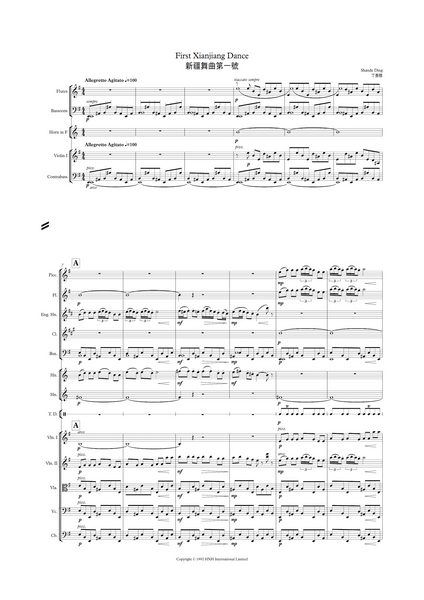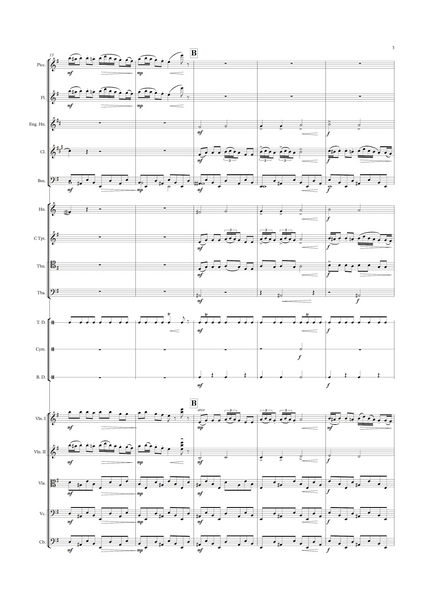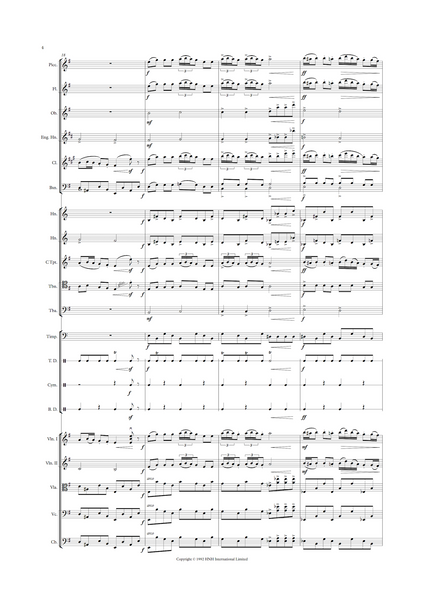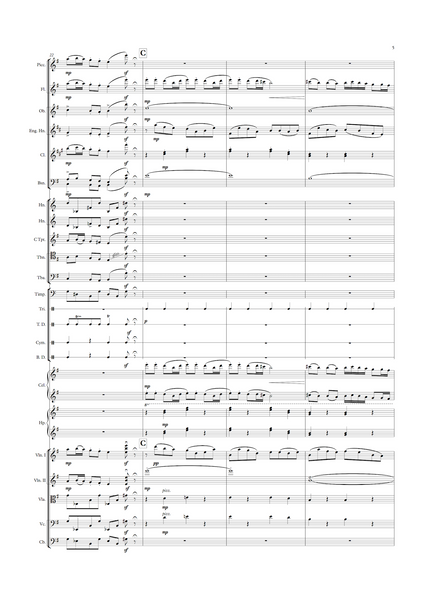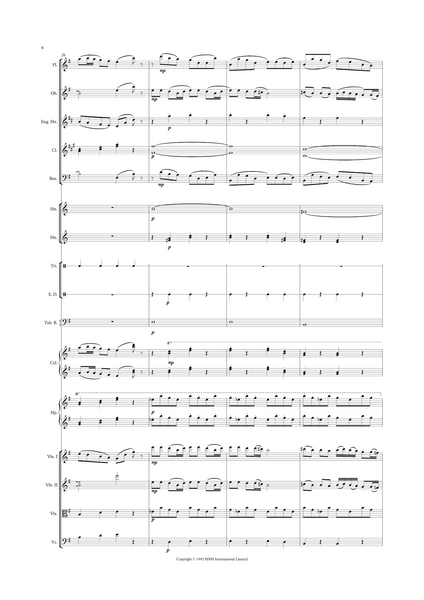Ding Shande: Xinjiang Dance No. 1, Op. 6 丁善德: 新疆舞曲第一號 – full score (NXP040)
Sheet music edition. Choose your format from the selection above.
Instrumentation: 2+1.2+1.2.2 - 3.1.1.1 - timp - perc (tri., snare drum, tenor drum, cymb, bass drum, tubular bells) - cel. - hp - strings
25 pages
Audio sample
First Xinjiang Dance (新疆舞曲第一號) was originally a piano solo composed in 1950. The musical material was taken from the music of a Xinjiang dance performed by Dai Ailian, a renowned dancer.
The composition consists of three parts. The first part is a cheerful and lively dance, the middle part sounds a deeper note, while the closing part is a recapitulation of the first part with some modifications. This piece is an excellent example of the combination of the Chinese folk-tune with occidental harmony. It was later orchestrated by the composer.
Ding Shande (丁善德) (1911–1995)
A Chinese composer and teacher, Ding Shande was born in Kunshan, Jiangsu, in 1911. Nurtured on folk music, he began to study the pipa when he was a child.
In 1928, he entered the Shanghai School of Music, studying the pipa and the piano. He then went on to major in the piano and, at the same time, studied composition with Huang Zi. After the War of Resistance against Japan, he established the Shanghai Music Society, took charge of its administration and pursued his musical education.
In 1947, he entered the Paris Conservatoire, studying composition with Boulanger. After returning to China in 1949, he worked for many years as Deputy Director of the Shanghai Conservatory and Dean of the Composition Department. Many celebrated musicians, such as pianists Zhu Gongyi and Zhou Guangren, harmonica-player Huang Qingbai, composers Zhou Wenzhong, Chen Gang and Wang Ming are his students. Besides, he has often been invited as a member of the jury for various international piano competitions.
His representative works include the symphony Long March, the symphony suite New China, the cantata Ode to the Huangpu River, the piano pieces Children Suite, First Xinjiang Dance and Second Xinjiang Dance, Symphony Overture, Piano Trio in C major, Piano Concerto in B-flat major, the symphonic poem Spring and the song cycle A Copy of West Yunnan Poetry.
Ding Shande died in 1995






